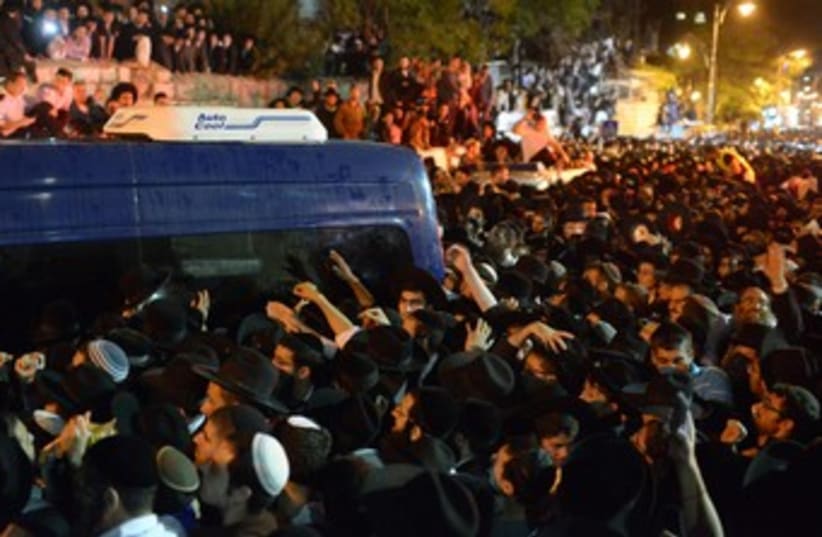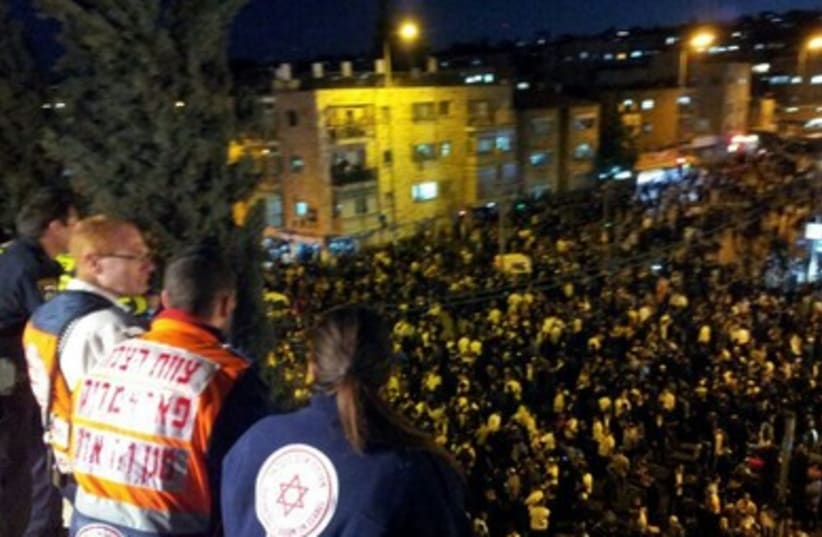
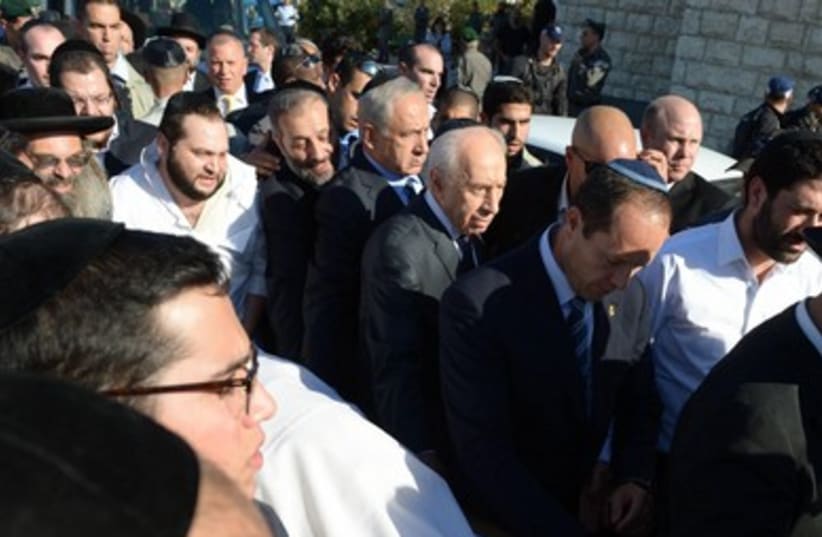
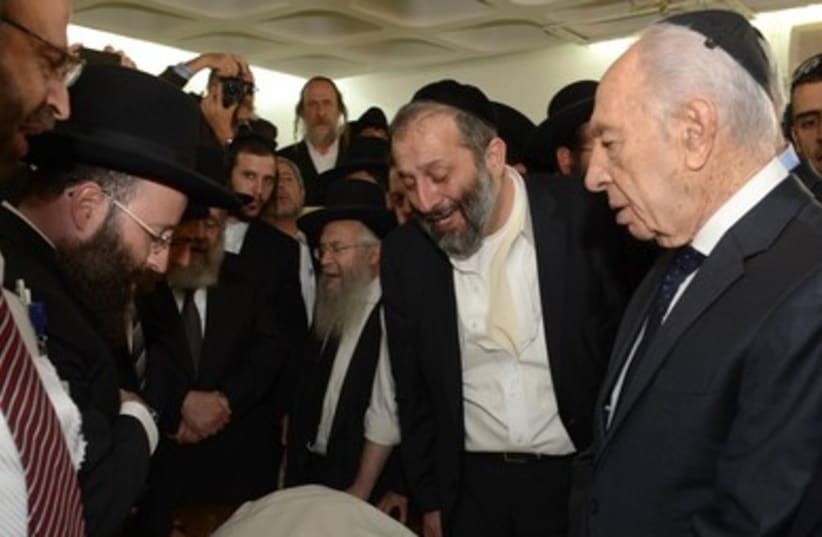
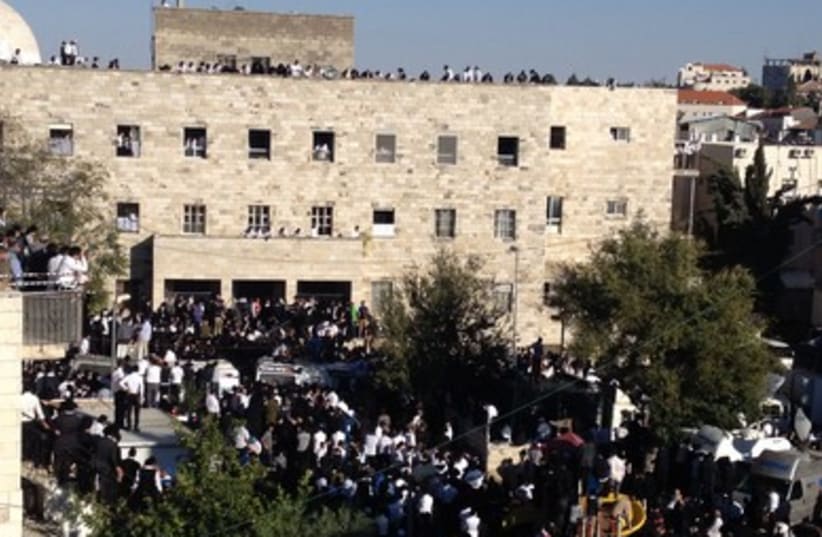
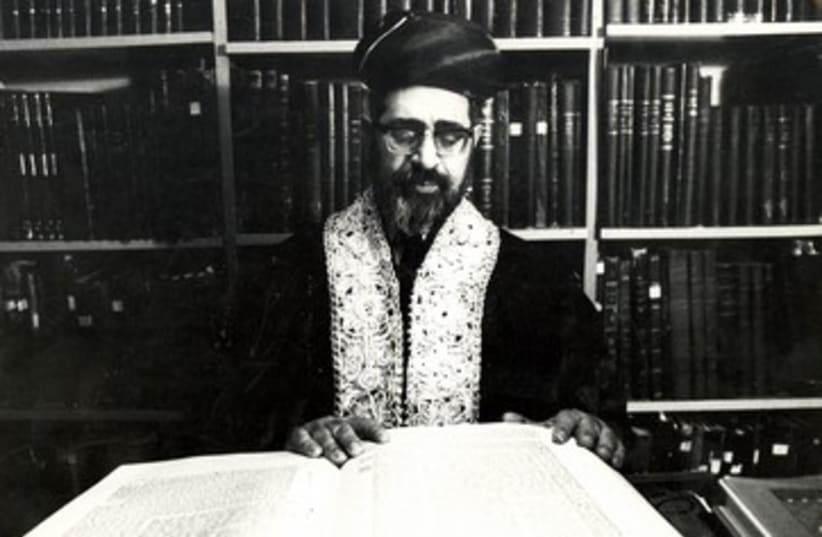
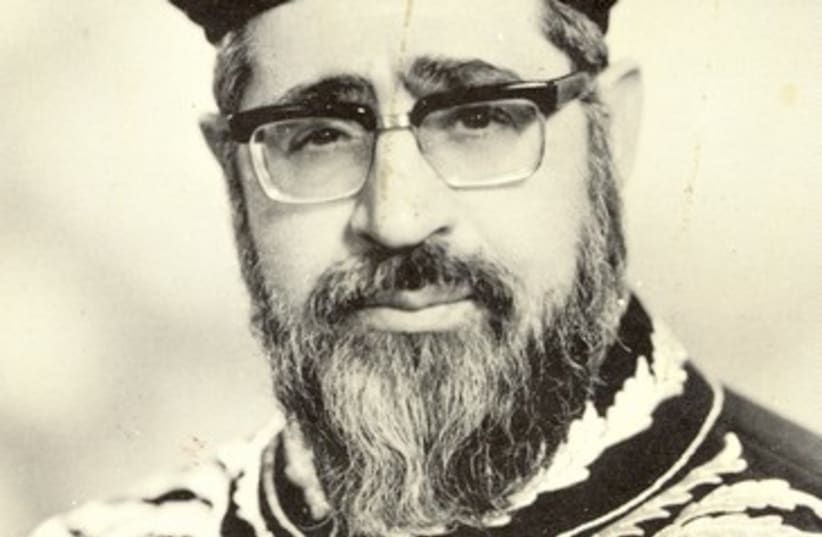
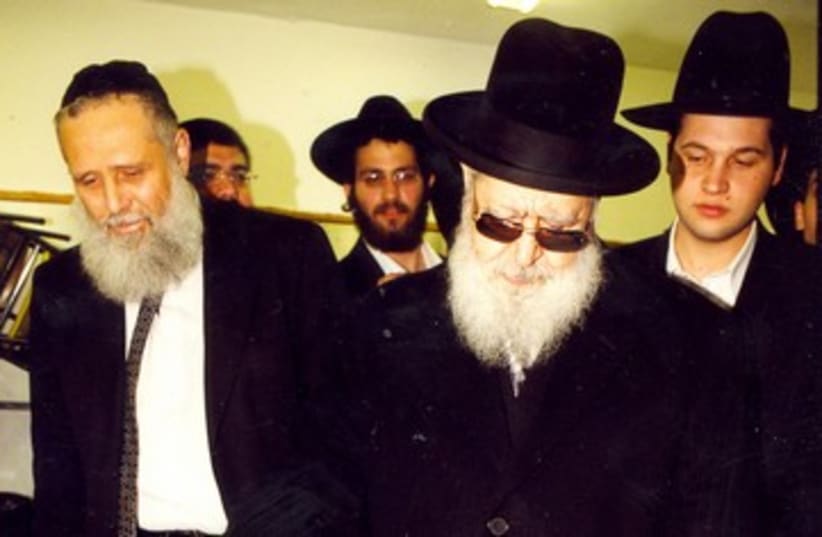
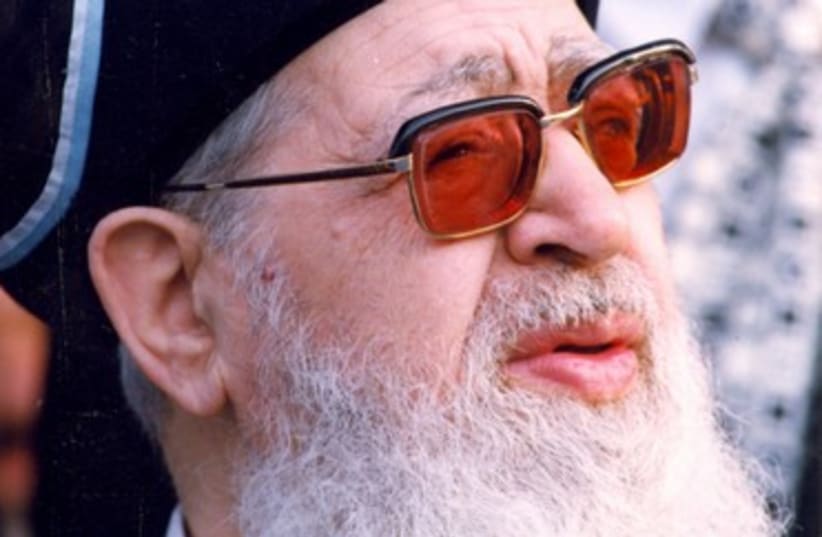
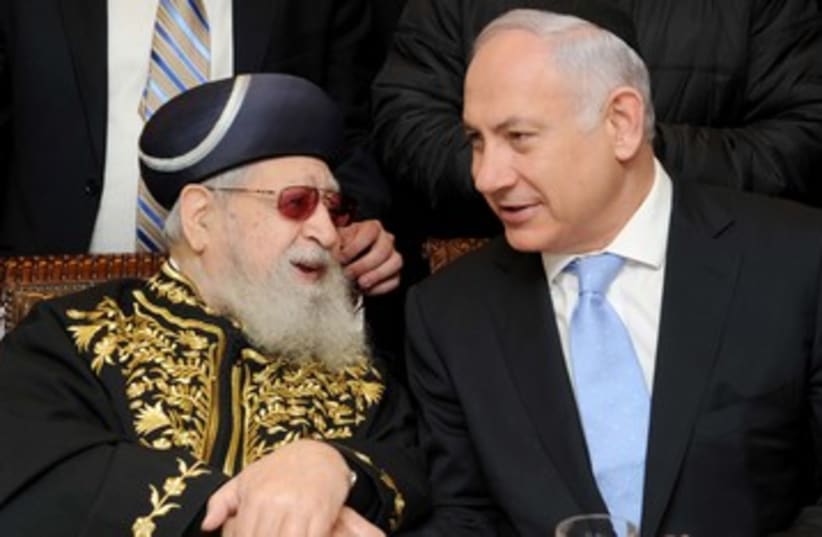
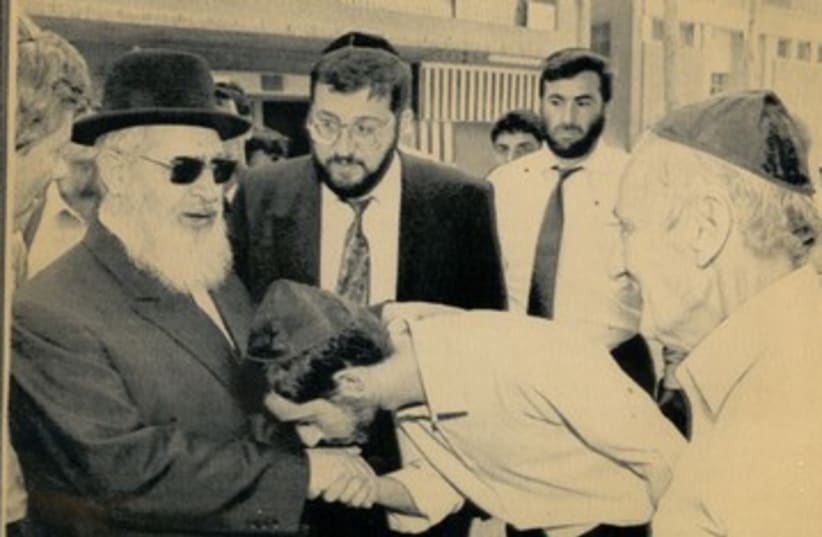

Devotees flooded to the capital from around the country to pay their final respects.Eulogies to the rabbi were given outside the Porat Yosef Yeshiva in Jerusalem’s Sanhedria neighborhood, and the funeral procession then continued to the Sanhedria cemetery where he was interred alongside his wife, Margalit, who died in 1994.The often controversial rabbi suffered the sudden organ failure of several systems earlier Monday morning after battling illness for several weeks. His doctors at Hadassah University Medical Center in Jerusalem’s Ein Kerem, announced that Yosef’s heart stopped beating at 1:20 pm, despite the efforts of a whole team of doctors and nurses to save him up until the last moments.Yosef had been in and out of hospital for several months prior to his death with a series of ailments.The rabbi’s sons and most trusted allies gave tearful eulogies to their departed father and leader, and spoke of the empty void he has left behind him.“You taught us to come down to the nation and not just to climb higher,” said Rabbi Avraham Yosef, eldest son of Ovadia, in his eulogy. “There was no one like him in our generation and no one [will come] after him.”His son David continued in the same vein, saying he had no one to ask questions on Halacha any longer.“You were the Moses of our generation, father, who shall we ask now,” he cried. “With whom shall we speak? Father! The world cannot continue as before. The sun has set. How shall this generation continue without you? We are orphans now.”The overwhelming numbers of people at the funeral procession and the overcrowding of the streets led to dozens of people being injured.As of midnight, Magen David Adom and United Hatzalah paramedics had given first aid to more than 296 people, of whom 29 had to be evacuated by ambulances and mobile intensive care units to Jerusalem hospitals.Among the medical problems of the people, all of whom were in good condition, were fainting, dehydration, bruises and weakness. One woman went into labor and gave birth to a baby boy.Tributes from political leaders flowed in following Yosef’s death.President Shimon Peres, a longtime friend of the the rabbi’s, was the last person, other than his family, to visit Yosef while he was still alive.“A few hours ago I went to the hospital to say goodbye to my teacher, my rabbi, my friend Rabbi Ovadia Yosef,” Peres said later. “His greatness wasn’t measured, but rather it was felt as a spiritual wind in every corner, lighting up the darkness in unexpected places. His contribution was his love for Israel and he solved problems no one else could solve using his wisdom and spirituality.”Prime Minister Binyamin Netanyahu also expressed sorrow over Yosef’s passing.“I heard with profound grief of the passing of [former] Sephardi chief Rabbi Ovadia Yosef, among the greatest rabbis of our generation,” Netanyahu said in a press statement.Yosef served as Sephardi chief rabbi of Israel from 1973 to 1983 and subsequently served as the spiritual guide of the Shas movement and political party.Through Shas, Yosef exerted great influence over Israeli political and cultural life, with the party he led becoming an integral component of many Israeli governments and giving it tremendous power in the political system.Yosef, by dint of his unquestioned Torah scholarship and his charismatic personality, also succeeded in bringing about a renaissance of Sephardi culture and religious traditions and brought a renewed sense of pride to that sector of society.The power exerted by Yosef and Shas, and their exercise of political patronage, nevertheless angered many in the country and was the source of often bitter opposition and anger to the rabbi.His frequent denunciations of political opponents, as well as controversial statements on issues such as the Holocaust, the Palestinians and current affairs, also aroused enmity and criticism from many quarters.Judy Siegel and Jerusalem Post staff contributed to this report.
